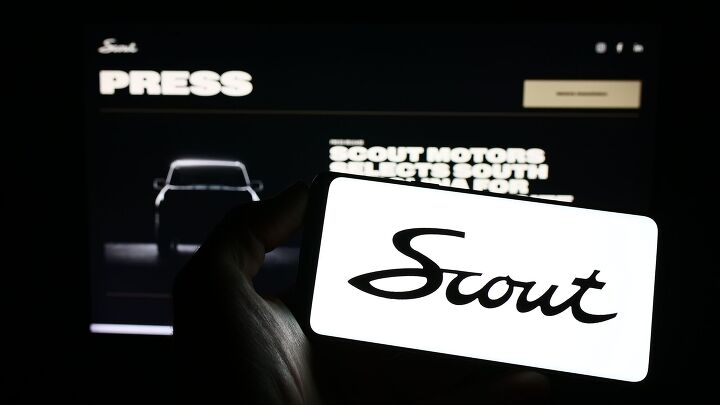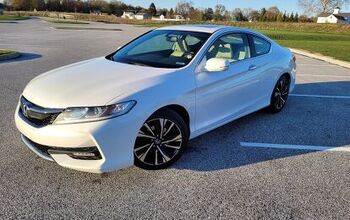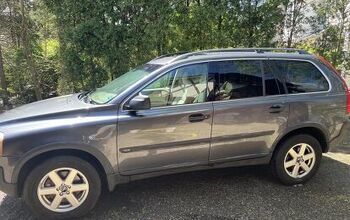Dealer Groups are Up In Arms About Potential for Scout and Sony Afeela to Sell Cars Directly to Buyers

Dealers are often the first group to sound concerns when something changes in the auto industry, whether they’re justified in their complaints or not. Most recently, a state dealer association created an ad asking Volkswagen Group and Sony Honda Mobility not to sell their upcoming EVs outside of the existing dealer network over concerns the new divisions could follow Tesla and Rivian in selling directly to buyers.
The group placed an ad in the April 15 issue of Automotive News and has collected support from all 50 state and 21 metro-area dealer associations. They warned that federal and local laws could prohibit selling directly to consumers and said that the groups could pursue legal options if they attempted to do so.
Advocates for the groups have long complained that they’ve received no information from automakers after years of trying.
“After two years of asking and getting nothing, frustration is very high,” one person told Automotive News. “If they want to sell the vehicles direct, it’s going to be an incredibly difficult battle.”
Executives from the automakers have dodged questions about the situation, noting that they wanted to leave their options open as market conditions evolve. At the same time, VW is moving to bring the Cupra brand to the U.S., where it’s currently unclear how they’ll be sold.
While it’s hard to argue against the dealer system for owner support and servicing, it’s also hard to argue against more choices for buyers. Purchasing online or ordering a car can be a vastly better experience than trying to track down a model on a dealer’s lot and then negotiate a price anywhere near MSRP, so it will be interesting to see where the cards fall when the new brands arrive on the market.
[Image: T. Schneider/Shutterstock.com]
Become a TTAC insider. Get the latest news, features, TTAC takes, and everything else that gets to the truth about cars first by subscribing to our newsletter.

Chris grew up in, under, and around cars, but took the long way around to becoming an automotive writer. After a career in technology consulting and a trip through business school, Chris began writing about the automotive industry as a way to reconnect with his passion and get behind the wheel of a new car every week. He focuses on taking complex industry stories and making them digestible by any reader. Just don’t expect him to stay away from high-mileage Porsches.
More by Chris Teague
Latest Car Reviews
Read moreLatest Product Reviews
Read moreRecent Comments
- 3-On-The-Tree My experience with turbos is that they don’t give good mpg.
- GregLocock They will unless you don't let them. Every car manufacturing country around the world protects their local manufacturers by a mixture of legal and quasi legal measures. The exception was Australia which used to be able to design and manufacture every component in a car (slight exaggeration) and did so for many years protected by local design rules and enormous tariffs. In a fit of ideological purity the tariffs were removed and the industry went down the plughole, as predicted. This was followed by the precision machine shops who made the tooling, and then the aircraft maintenance business went because the machine shops were closed. Also of course many of the other suppliers closed.The Chinese have the following advantagesSlave laborCheap electricityZero respect for IPLong term planning
- MaintenanceCosts Yes, and our response is making it worse.In the rest of the world, all legacy brands are soon going to be what Volvo is today: a friendly Western name on products built more cheaply in China or in companies that are competing with China from the bottom on the cost side (Vietnam, India, etc.) This is already more or less the case in the Chinese market, will soon be the case in other Asian markets, and is eventually coming to the EU market.We are going to try to resist in the US market with politicians' crack - that is, tariffs. Economists don't really disagree on tariffs anymore. Their effect is to depress overall economic activity while sharply raising consumer prices in the tariff-imposing jurisdiction.The effect will be that we will mostly drive U.S.-built cars, but they will be inferior to those built in the rest of the world and will cost 3x-4x as much. Are you ready for your BMW X5 to be three versions old and cost $200k? Because on the current path that is what's coming. It may be overpriced crap that can't be sold in any other world market, but, hey, it was built in South Carolina.The right way to resist would be to try to form our own alliances with the low-cost producers, in which we open our markets to them while requiring adherence to basic labor and environmental standards. But Uncle Joe isn't quite ready to sign that kind of trade agreement, while the orange guy just wants to tell those countries to GFY and hitch up with China if they want a friend.
- CEastwood Thy won't get recruits who want to become police officers . They'll get nuts who want to become The Green Hornet .
- 1995 SC I stand by my assessment that Toyota put a bunch of "seasoned citizens" that cared not one iota about cars, asked them what they wanted and built it. This was the result. This thing makes a Honda Crosstour or whatever it was look like a Jag E type by comparison.


































Comments
Join the conversation
“After two years of asking and getting nothing, frustration is very high,” one person told Automotive News. “If they want to sell the vehicles direct, it’s going to be an incredibly difficult battle.”
Works for Tesla.
What is the difference between a car dealer and a drug dealer? Not much - you can end up dead using what they sell you. The real difference is that one is legal and one is not.